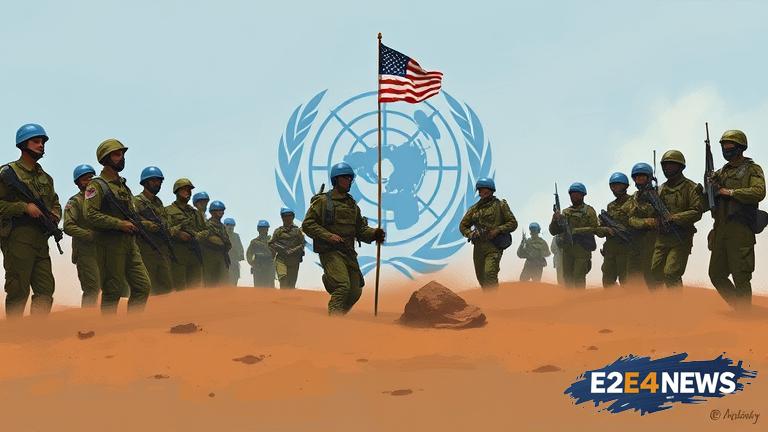Catherine Connolly, a prominent figure, has voiced her deep concern regarding the US veto on UN peacekeeping missions. The veto, which was recently exercised, has sparked widespread debate and discussion among international leaders and organizations. The primary concern is that the veto may hinder the effectiveness of UN peacekeeping efforts, potentially leading to increased instability and conflict in regions where these missions are deployed. Connolly emphasized the importance of UN peacekeeping in maintaining global security and promoting humanitarian values. She also highlighted the need for international cooperation and collective action to address the challenges posed by the US veto. The US veto has been criticized by many, with some arguing that it undermines the principles of multilateralism and the authority of the United Nations. Others have expressed concerns that the veto may embolden aggressor states, leading to further conflict and human suffering. The implications of the US veto are far-reaching, with potential consequences for global governance, international relations, and humanitarian law. The veto has also raised questions about the role of the United States in international affairs, with some arguing that it marks a shift towards a more isolationist foreign policy. In response to the veto, there have been calls for reform of the UN Security Council, with some advocating for the expansion of membership and the limitation of veto powers. Others have suggested that the UN should explore alternative mechanisms for authorizing peacekeeping missions, such as the General Assembly. The situation has also sparked a wider debate about the effectiveness of UN peacekeeping, with some arguing that the organization needs to adapt to changing global circumstances and improve its response to emerging crises. Despite these challenges, Connolly remains committed to the principles of UN peacekeeping and the importance of international cooperation in promoting peace and security. She has called on the international community to work together to address the challenges posed by the US veto and to find ways to strengthen the UN’s ability to respond to global crises. The US veto has also been criticized by other countries, including European nations, which have expressed concerns about the potential consequences for global security and stability. The European Union has called for a strengthening of the UN’s role in international affairs and has emphasized the importance of multilateral cooperation in addressing global challenges. In conclusion, the US veto on UN peacekeeping missions has sparked widespread concern and debate, with many arguing that it undermines the principles of multilateralism and the authority of the United Nations. The implications of the veto are far-reaching, with potential consequences for global governance, international relations, and humanitarian law. As the international community grapples with the challenges posed by the veto, it is clear that collective action and cooperation will be essential in promoting peace and security and addressing the complex challenges of the 21st century. The situation highlights the need for continued dialogue and diplomacy, as well as a commitment to the principles of international law and humanitarian values. Ultimately, the US veto serves as a reminder of the importance of international cooperation and the need for collective action in addressing global challenges. By working together, the international community can find ways to strengthen the UN’s ability to respond to global crises and promote peace and security for all. The US veto has also raised questions about the role of other countries, such as China and Russia, in international affairs, with some arguing that they may seek to exploit the situation to further their own interests. However, it is also possible that the veto may create opportunities for other countries to take on a more prominent role in international affairs, potentially leading to a more multipolar world order. As the situation continues to evolve, it is clear that the international community will need to navigate a complex and rapidly changing global landscape, with the US veto serving as a catalyst for wider debates about the future of international relations and global governance.
